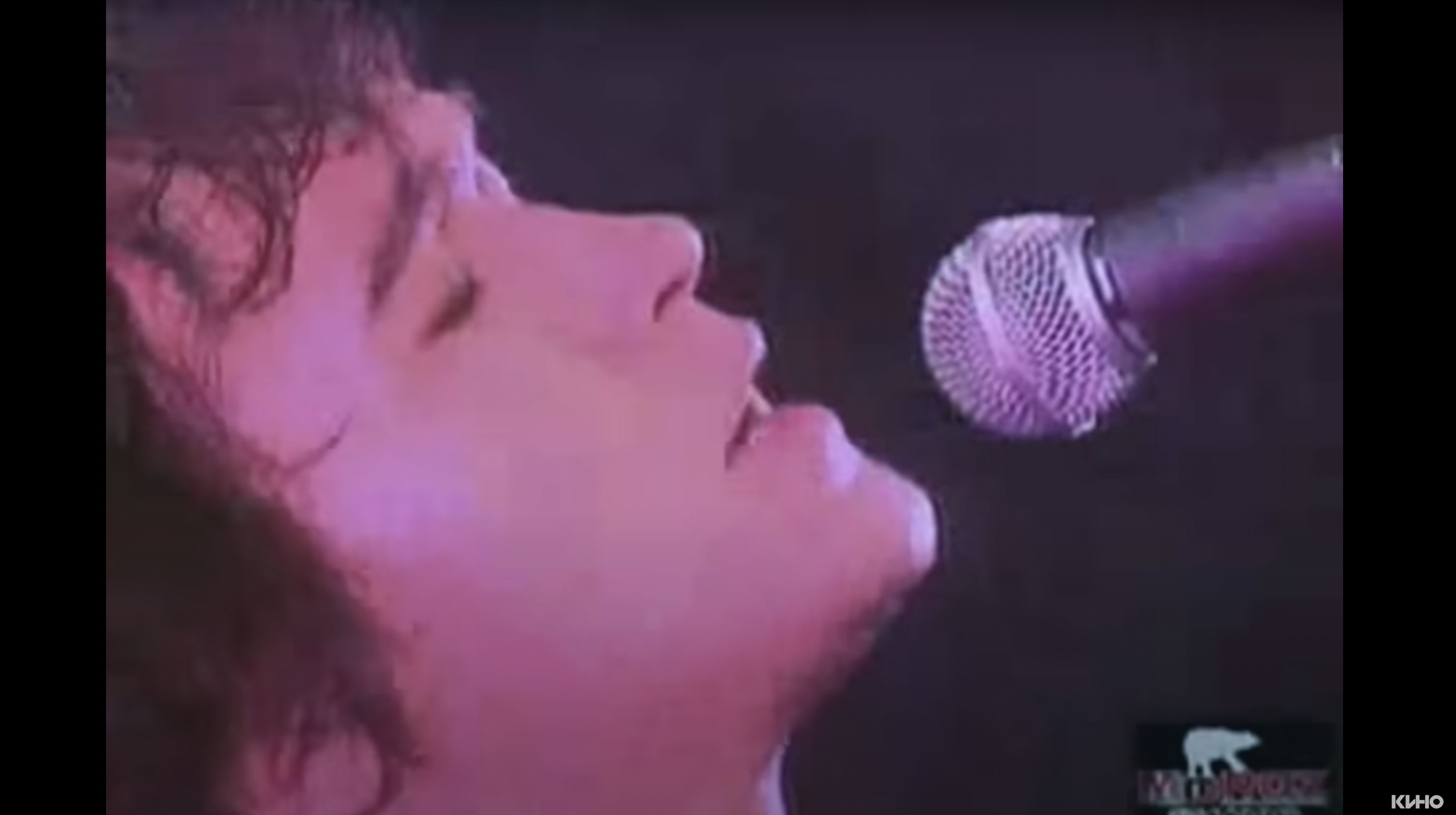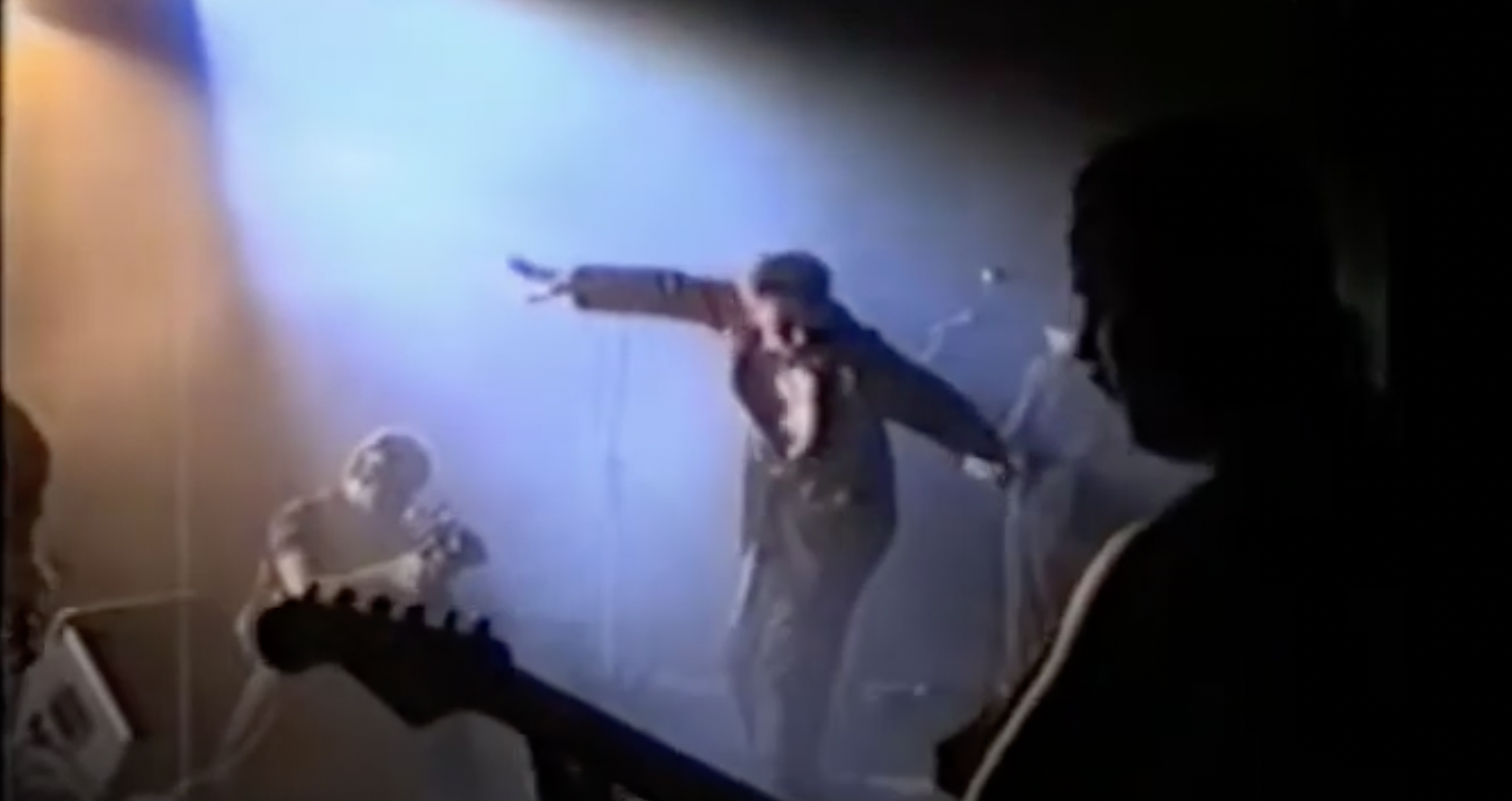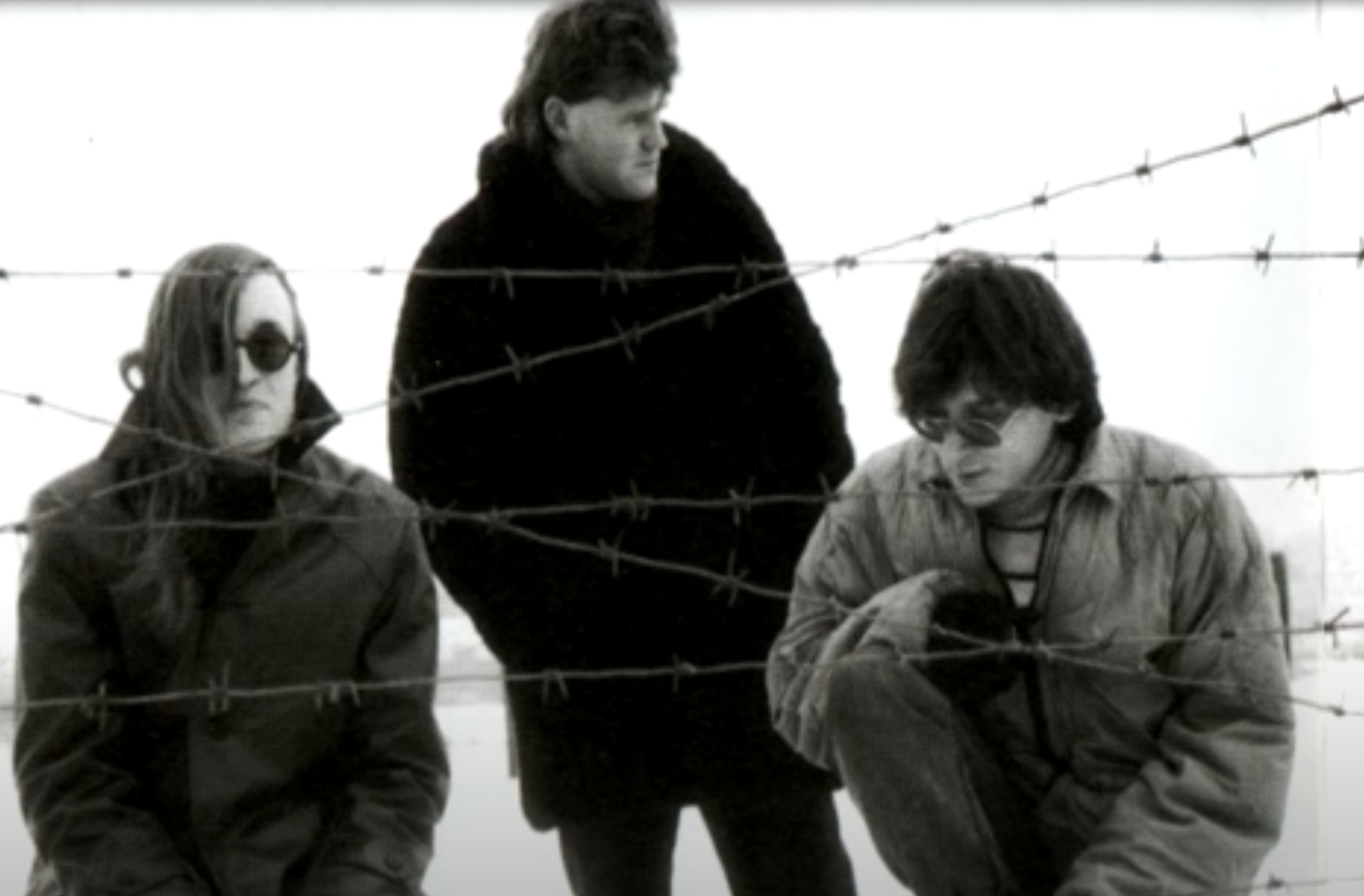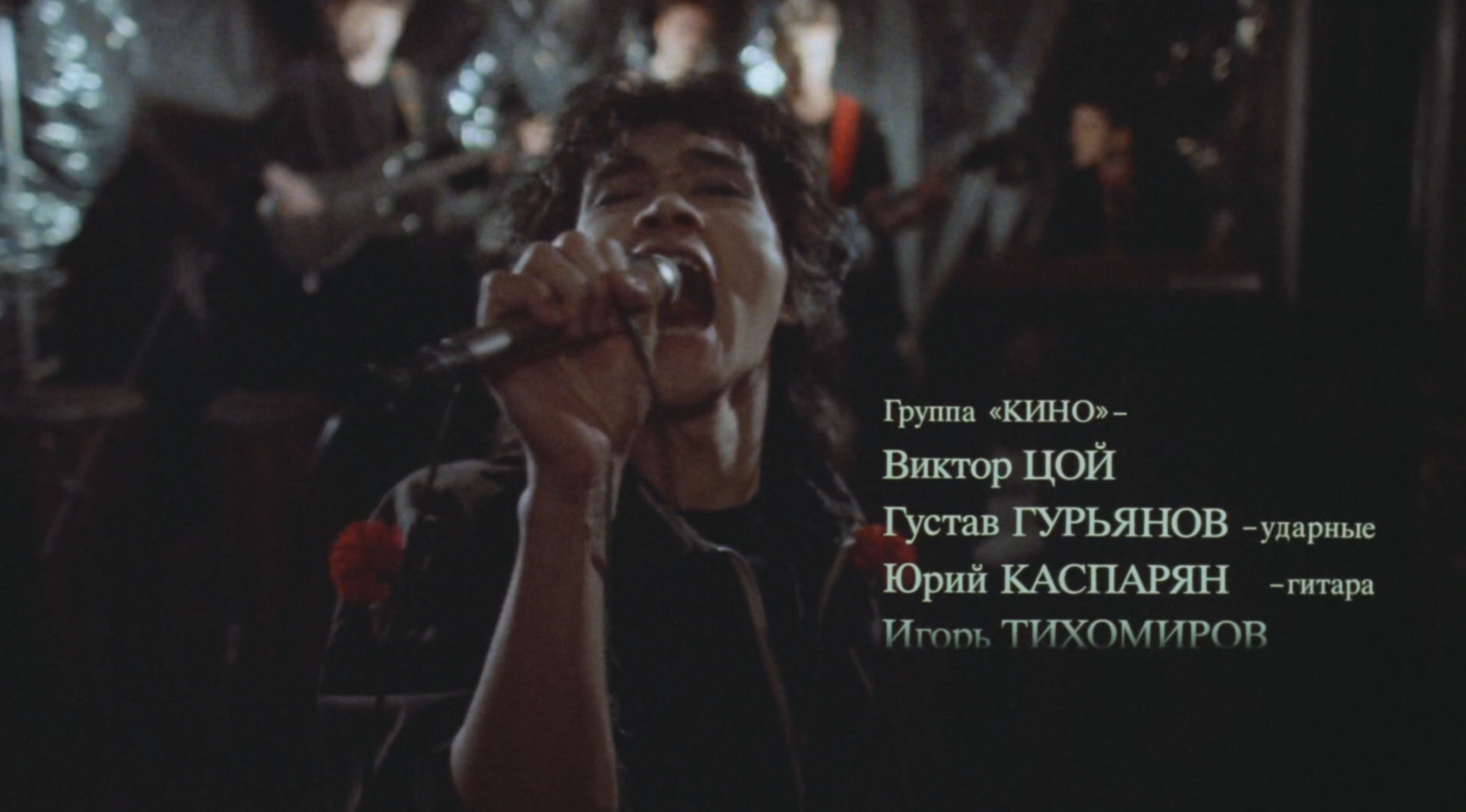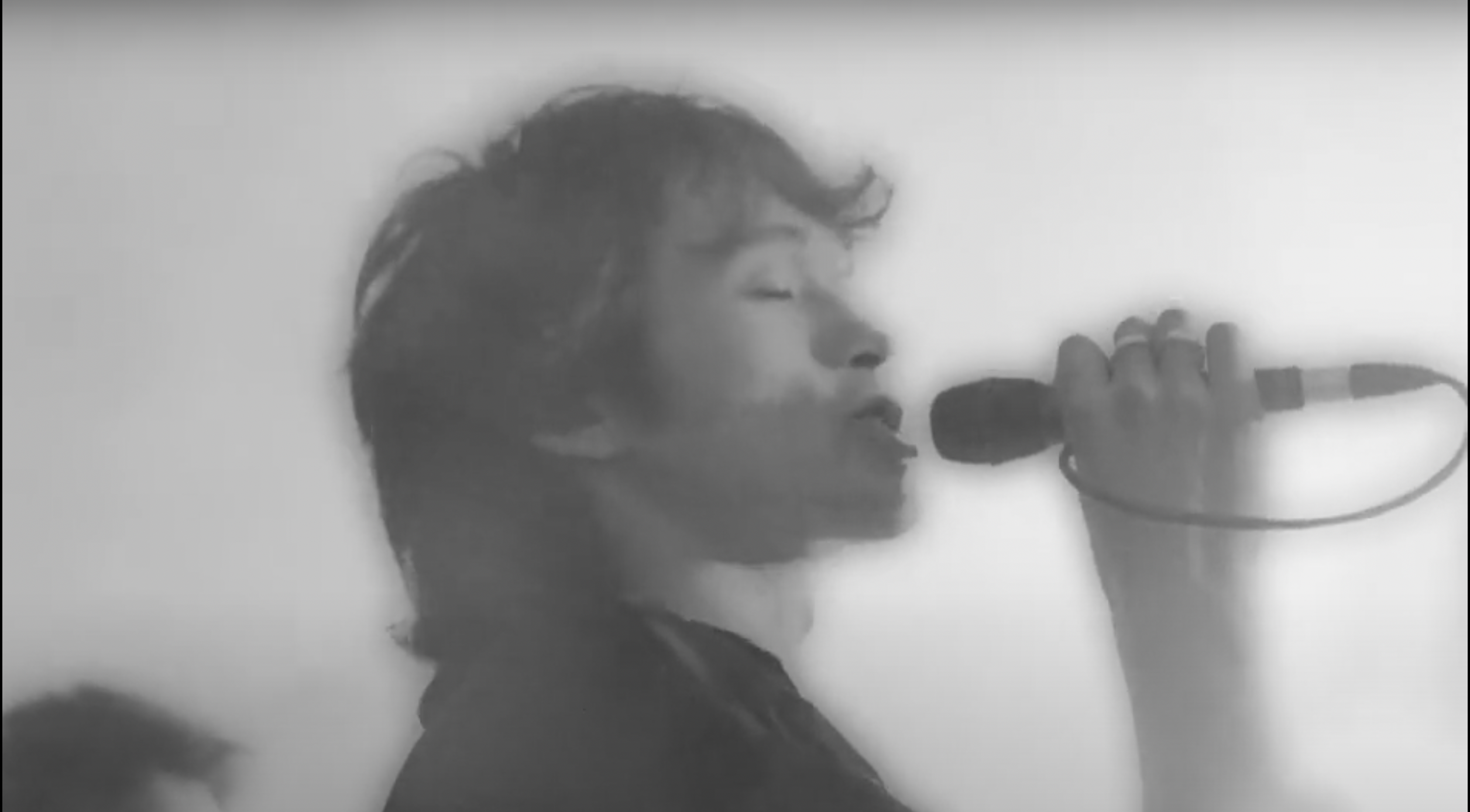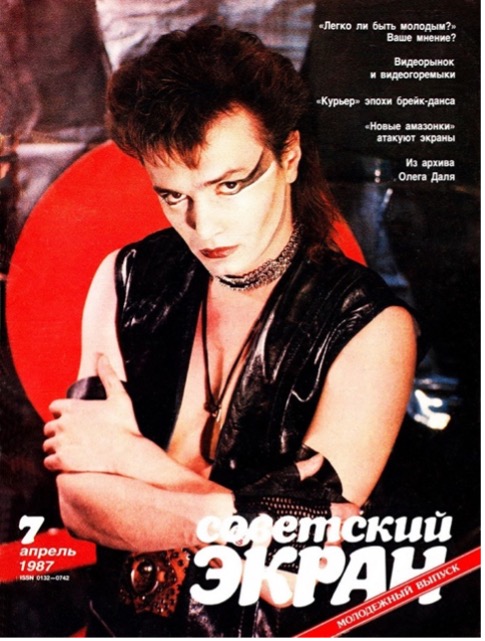Explore:
Kino’s last concert at Luzhniki Stadium
Footage of a live Kino concert at Moscow's Luzhniki Stadium on 24 June 1990, about six weeks before frontman Viktor Tsoi's death in a car accident in rural Latvia at the age of 28. We see the band at the apex of its popularity, and the country in transition: a heavy and conspicuous Soviet police detail is assigned to the event, while audience members wave both the Soviet flag and the Russian tricolor banner.
Auktsyon performs “Alive” (Zhivoi) at the 8th Leningrad Rock Club Festival, 14 March 1991
As an art-jazz-rock collective, Auktsyon was a genre-blending musical and performance phenomenon within the Leningrad underground, distinguishing itself from other bands in both longevity and stylistic variation. Throughout the post-Soviet period, Auktsyon gradually increased the antiestablishment content of its music, while maintaining a veneer of ideological ambiguity.
"Vse idet po planu." Audio recording. By Grazhdanskaia Oborona
The 16th track on Grazhdanskaia Oborona's 1988 eponymous punk-rock album, whose refrain became a popular catchphrase of the late perestroika and post-Soviet period. The song cemented Egor Letov and his band as a major influence during Perestroika, marking the punk genre's departure from the established norm of largely avoiding politically-charged lyrical content.
Sergei Solovyov’s film “Assa,” 1987
The finale of Sergei Solovyov’s (1944-2021) film 1987 film ASSA features rock star Viktor Tsoi (1962-1990) performing his hit "Changes! [Peremen]" to a stadium crowd. The film’s record-breaking commercial success marked the moment when Soviet rock music transitioned from counterculture to mainstream.
Rashid Nugmanov’s documentary film “Yahha,” 1986
Kazakh film director Rashid Nugmanov's (1954-) final project for Sergei Solovyov’s (1944-2021) workshop at VGIK—the Moscow-based film school known in English as the Gerasimov Institute of Cinematography—included some of the first film footage of everyday life in the Leningrad rock music scene.
"Sovetskii ekran" with Konstantin Kinchev on the cover
Popular film magazines like Soviet Screen (Sovetskii ekran) were instrumental in establishing rock musicians as cultural icons. Volume 7, from 1987, places Konstantin Kinchev (1958-), frontman of the Leningrad band Alisa, on the cover of its “youth issue” (molodezhnyi vypusk) in an effort to promote Valerii Ogorodnikov’s film The Burglar (Vzlomshchik, 1987), in which Kinchev plays the lead role.
